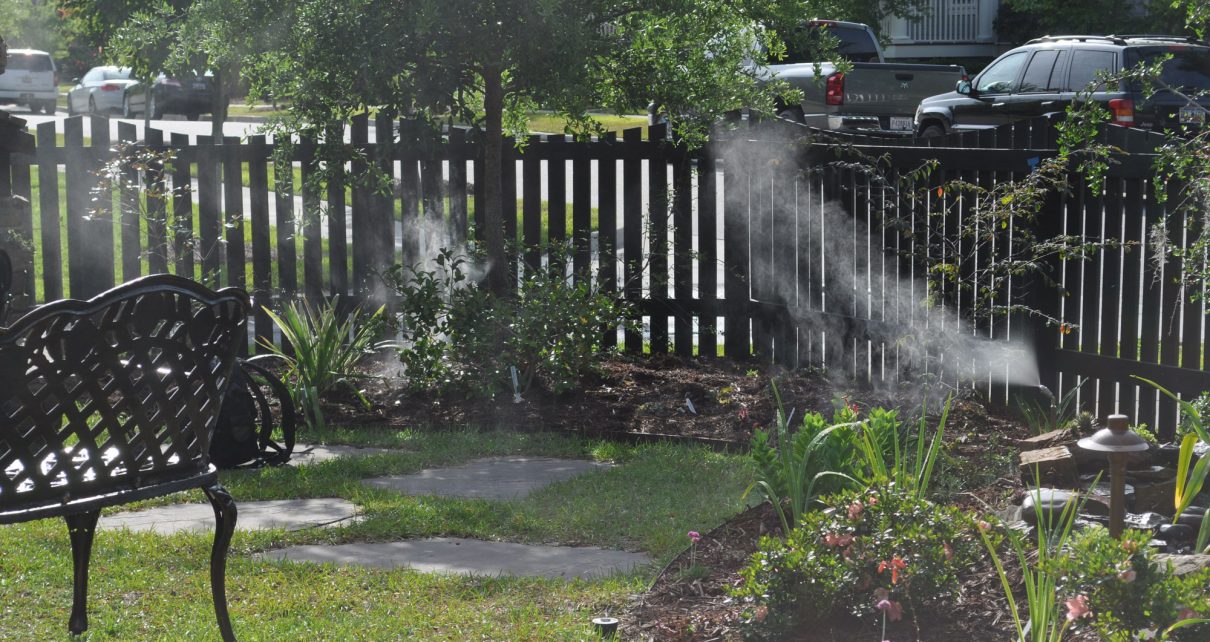Whether you’re wanting to avoid a disrupted sleeping or a risky disease, it’s worthwhile spending your cash on options that work. Here’s what scientists say about the efficacy of mosquito control products. Here also are the very best remedies that will keep mosquitoes away this summer.
The most recent advances (don’t work)
There really is an software for everything. In the past couple of years, many designers have recently come out with smartphone applications that purport to repel mosquitoes. LG also launched a smartphone with built-in, mosquito-repelling technology. The only real problem? They don’t work.
More accurately, there’s no scientific evidence to aid the boasts that the ultrasonic technology used in mosquito-repelling devices actually preserves mosquitoes away. Actually, the opposite holds true.
Many reports disprove the theory that ultrasonic technology repels mosquitoes. In a single blinded, controlled analysis, scientists found no factor between a test area at the mercy of an ultrasound device made to repel mosquitoes and an area without the device. Another study shown that gadgets purporting to regulate mosquitoes with audio actually increased biting rates.
While researchers conducted these studies before the release of the latest smartphone apps, mosquito-control programs on the market today use the same technology as the ultrasonic devices tested. The conclusion is that this technology didn’t work in other devices, why should it work in smartphones?
The same applies to the ultrasonic wearable patches available from a number of manufacturers. A 2017 study printed in the Journal of Insect Knowledge tested five wearable devices, finding that only one experienced any results. The particular one used a nebulizer made up of metofluthrin, an ingredient known to repel mosquitoes when used as a fogger to emit a vapor around its wearer.
What really preserves mosquitoes away and how much does a mosquito misting system cost?
Today’s scientists generally agree that the best mosquito controls include a combo of repellents put on skin area or clothing and physical barriers that prevent mosquitoes from getting you in the first place. However, not all products are created equally. Here’s a look at the very best adjustments backed up by science.
Repellents
Because the US Department of Agriculture developed DEET in 1944, the man made chemical is a mainstay of bug repellents. Short for N, N-diethyl-3-methylbenzamide, DEET works by activating the olfactory receptors in mosquitoes, effectively repelling them because they dislike its smell. Alas DEET can irritate mucous membranes and cause epidermis reactions, burning eyes, breathing difficulties, and headaches in some people.
Both EPA and the CDC have motivated DEET to be safe, but recommend concentrations of 30% or less on children. (The North american Academy of Pediatrics recommends 10%). Never apply DEET to silicone, vinyl, vinyl, and spandex since it may dissolve these fibers.
Although scientists and manufacturers have done many trials to find a DEET equivalent, only a few plant-based source show promise.
Oil of lemon eucalyptus (OLE) containing p-menthane-3, 8-diol (PMD) performed equally well as DEET in the Journal of Insect Science review quoted above. In addition, it worked well for the same amount of time as DEET products. Analysis authors figured, “DEET and PMD [are] the very best and longest sustained mosquito repellents currently available.” PMD is situated in products made up of C. Citriodora (oil of lemon eucalyptus) and the tradenames Citrosynthol, Citrepel and Citriodiol. It is also effective against ticks.
Neem oil has also shown effective by one review conducted in the tribal forested villages of Mandla, India. Produced from the neem tree (Azadirachta indica) local to the Indian subcontinent, Neem oil mixed with coconut oil and applied right to your skin reduced mosquito bites by up to 91%. When added to kerosene and oil lighting fixtures along with other fuel, neem oil is also recognized to reduce mosquito existence.
Picaridin is another synthetic element proven effective against mosquitoes. Developed in Europe in the later 1990s, picaridin became open to American consumers in 2005. Studies show it must constitute at least 20% of the perfect solution is to work. While it’s generally regarded as a safe option to DEET (without the of this chemical’s plastic-dissolving features), picaridin hasn’t been as intensely tested.
A kid’s version of Natural Armor also fared well in the Insect Science study. Containing a variety of essential natural oils including citronella, cedar, lemongrass, and peppermint, it performed equally well as a 40% DEET solution and much better than a 10% picaridin solution.
Plant based Armor natural mosquito repellent
Barriers
When instances of dengue fever started cropping up in Key West, Florida, local officials asked residents to safeguard themselves by dressing in long sleeves and long shorts at dusk and dawn, when mosquitoes were more frequent and more likely to bite. Dealing with clothing with repellent can help as well. You need to be aware that permethrin, the ingredient used to take care of clothing for mosquitoes, is a known carcinogen if used and has been linked to Parkinson’s disease. Permethrin also functions as an insecticide rather than a deterrent, so mosquitoes may still bite you by way of a permethrin-treated garment and not die until after. Permethrin-treated clothing is normally considered safe and is currently available from major outdoor vendors.
When camping in areas with healthy mosquito populations, absolutely nothing beats a physical hurdle like bug coats with enclosed hoods and mosquito shelters for sleeping or eating. We especially like Onsight insecticide-free mosquito shelters because they’re created from 60-100% recycled materials.
Aerosols
Just lately products have entered the market that work at warding off mosquitoes using scents or aerosols emitted in to the air. One common ingredient found in these products is the insecticide allethrin. The Thermacell uses butane gas to heating pads soaked with allethrin. These pads emit an aura that problems the nervous system of mosquitoes. Allethrin works well at preventing mosquitoes in targeted outdoor areas. Scientists recommend against using the merchandise in enclosed spots. The merchandise is also regarded as dangerous to bees, cats and seafood, so extreme caution should be utilized whenever choosing anything formulated with this ingredient.
Other ways to regulate mosquitoes
Remove mosquito habitat
Eliminate standing normal water such as puddles, stagnant ponds, and uncirculated birdbaths to prevent mosquitoes from reproducing and lower mosquito populations in your neighborhood. In places where you can’t remove standing up normal water, try adding mosquito dunks. These unique products use a by natural means occurring bacterium dangerous and then mosquito larvae. They’ll kill in a few hours and keep working for 30 days.
Light a candle
While citronella candles aren’t effective outdoors, they can be effective when used inside, in small spaces. Other candles made up of essential oils may help fool mosquitoes because of their strong scents, though more studies are had a need to determine their success.
Turn on the fan
Oscillating fans can help remove the carbon dioxide breathed out by people and pets, which allures bugs. That is another solution for small interior spaces.
Plug in electronic bug killers
Never to be confused with ultrasonic insect killers, the unit attract mosquitoes and other bugs using UV light and octenol lures. Bugs fly straight into an electrified grid and die quickly. Electronic insect killers are designed to work in regions of up to one . 5 acres and should be plugged in 25 foot away from regions of high individual activity-between you as well as your most likely insect source. Ability using an expansion cable and replace UV light bulbs once per year. If you’re targeting mosquitoes, make sure to use the octenol lure or you might wrap up killing beneficial insects instead.
Add some parrot and bat houses
While installing biological adjustments won’t be your first line of defense against mosquitoes, adding parrot and bat residences to your backyard is one way to decrease the mosquito human population. Bats, dragonflies, and birds like Crimson martins, all do their talk about of the task when trying to find food. However, keep in head that they eat a tiny small percentage of the mosquitoes when other victim can be found, so using other control buttons at the same time is important.



